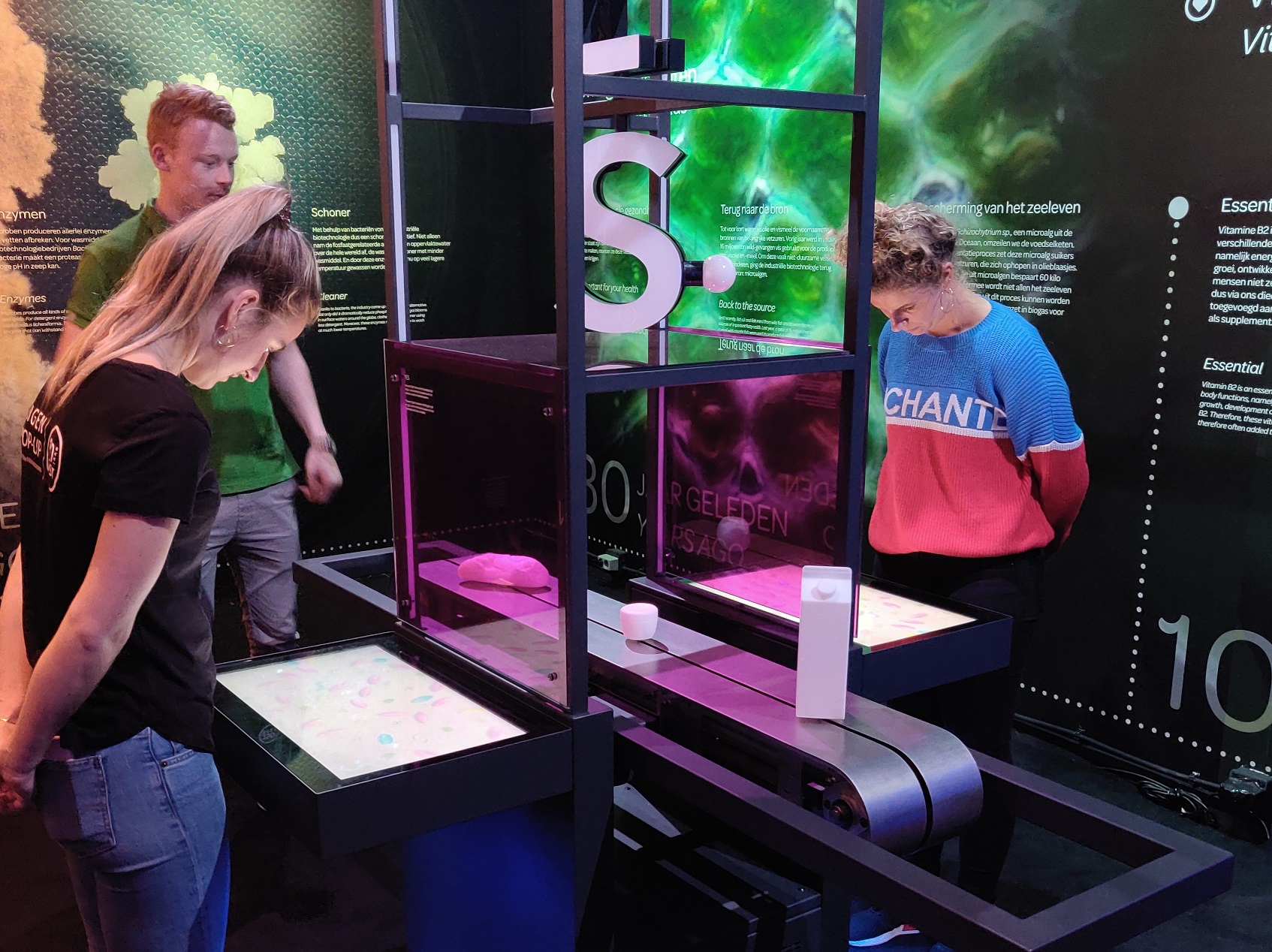Royal DSM recently celebrated 150 years of biotechnology-based production and innovation in an exhibition. TU Delft TV took a tour and learned all about yeast.
A part of the exhibition '150 years of yeast'. (Photo: Marjolein van der Veldt)
As part of its 150th anniversary celebration, Royal DSM opened the doors of its headquarters to the public for an exhibition entitled 150 years of yeast. In the building, that some refer to as an industrial cathedral, visitors learned about microbes, biotechnology and the life of Jacques van Marken, the founder of the factory now known as DSM.
Learn how to make baker’s yeast
Van Marken studied technology at what was then called the Polytechnical School (now TU Delft). After graduating, he wanted to be useful to society and acquired the idea of learning how to make baker’s yeast.
Want to skip the text? Watch the video below this article.
“Something they only did in Austria at that time,” says TU Delft alumnus Jan van der Mast, who wrote a biography and a play of the life of Van Marken. “So he packed his bags and landed an internship in Vienna where he learned to make yeast. After his apprenticeship he returned to Delft and founded a yeast company, later known as DSM.”
‘The factory for all, all for the factory’
A pioneer and an entrepreneur, Van Marken had the drive for improvement and this affected his employees positively. “He was the first employer to introduce staff benefits such as retirement and a works council. Even more impressive, 20 years before the Housing Act was passed, he built the Agnetapark with 400 houses for his employees.
He also lived there himself, amongst his employees and called it his own small society. Believing in working together to achieve more, Van Marken also founded a company newspaper and lived by the slogan ‘the factory for all, all for the factory’.”
Viruses
To speed up the process of yeast development, Van Marken brought in talent from other cities. One of them was Martinus Beijerinck, a microbiologist from Wageningen. He was key in the discovery of the Schizosaccharomyces octosporus yeast species, a genus of fission yeasts. Beijerinck later became a professor at TU Delft, which led to a more intense relationship between TU Delft and DSM. That relationship is visible to this day as DSM welcomes many TU Delft students and graduates to the company.
- The 150 years of yeast exhibition closed on 15 December 2019. While visits are no longer possible, there is a lot of information online.
TU Delft TV / TU Delft TV is a collaboration between Delta and the Science Centre. The crew consists of TU Delft students.



Comments are closed.